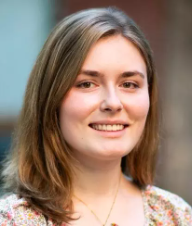Should You Attend Graduate or Professional School?
Many consider attending graduate school to gain knowledge in a particular field of interest, to expand career opportunities and increase earning potential, or to work closely with experts in a field. Graduate school involves an in-depth course of study within an academic area while a professional graduate program is for a specific career path such as business, medical, or law school. The Post-Graduate and Summer Outcomes data shows that, in 2020, 39% of MIT graduating seniors planned to pursue advanced degrees right after graduation.
Give yourself plenty of time to make this decision. The graduate school application timeline below will help you stay on track.
Self-Assessment and Decision Making
Would graduate or professional school help you reach your goals? Self assessment is important when deciding if graduate school is critical to your career plan and if the timing is right. Some key questions to ask yourself when starting your graduate program search include:
- Why do you want to attend graduate or professional school?
- What types of career paths are you planning to pursue?
- What values, skill sets, environment, and relationships will help you thrive as a student and professional?
As part of the self-assessment process, you can:
- Learn more about the fields you are interested in through informational interviews, books at the MIT Libraries or CAPD library (room E17-294), research, and internships.
- Consider how you make decisions.
- Set up a career advising appointment to help you weigh the pros and cons.
Academic Preparation
Strong undergraduate academic preparation is essential for graduate and professional school. Key skills include critical thinking, analytical abilities, research abilities, written communication, verbal communication, time management, self-motivation, and self-discipline. Graduate and professional schools require a strong undergraduate GPA, and you will be asked to submit a transcript with your application.
- Be sure to investigate if any courses are prerequisites for the programs you wish to enter.
- Departmental academic advisors can help you plan your academic schedule and Student Support Services can provide support, if needed.
- MIT faculty in your field of interest can also provide advice.
Types of Graduate and Professional Degrees
Which degree makes the most sense for you? Talking to people in the field can help you decide. As you prepare for those conversations, learn about the types of degrees below:
- Research Master’s: Typically one to two years, designed for students to gain expertise in research or scholarship, often a step towards a PhD.
- Professional Master’s: Typically one to two years, often a terminal degree, meant to prepare a student to work in a specific field such as engineering, business, education, or counseling.
- Research Doctorate: Also known as a PhD or ScD. Takes a minimum of four to six years of full-time study and involves course work and a major research project.
- Professional Doctorate: Typically refers to the MD for medical practice and JD for law.
Gain Experience
Graduate and professional schools look for demonstrated interest in the field you are planning to study. Gaining research (especially important for PhD candidates), job, internship or volunteer experience in the field, in addition to what you have studied as an undergraduate or Master’s student, will help you build a competitive application.
- Participate in MIT Undergraduate Research Opportunities Program (UROP).
- Gain work experience through internships and jobs.
- Actively participating in relevant student organizations can also demonstrate your interest.
- Volunteer through the MIT PKG Public Service Center.

Two Years Prior to Application Year:
- Explore graduate school.
- Begin researching schools. Consider programs, faculty research, and locations of interest.
- Plan for cost of applying. Determine application and standardized test fees, the cost of study materials, and funds that may be needed for future campus visits.

One Year Prior to Application Year:
- Begin or continue researching programs.
- Begin researching scholarships and fellowships to help you pay for school.
- Get federal and institutional financial aid information.
- Sign up for and begin reviewing for standardized tests.
- Attend related events offered by CAPD and graduate/professional school information sessions.

Application Year:
August:
- Check to see if applications have posted on program websites.
September:
- Develop your personal timeline for applying. Know the deadlines!
- Request letters of recommendation.
- Prepare your resume. Have it reviewed by a CAPD advisor.
- Begin or continue to collect information about national and school-based fellowship programs, and their required application materials.
October:
- Take the standardized test required for your program if you haven’t already.
- Write your statement of purpose and have it reviewed at CAPD, the Writing and Communication Center, or at a communication lab.
- Request official transcripts.
- Complete financial aid and scholarship forms.
- Think about alternatives to graduate school.
November/December:
- Finalize and submit all application materials.
- Contact your recommenders and kindly remind them of the deadlines for your application.
- Follow-up and make sure that each school has received your application materials and that it is complete.

Interviews and Post-Application Period:
January/February/March:
- Prepare for any interviews you may have. Arrange a CAPD mock interview for practice.
- Complete and submit your financial aid forms (both federal and institutional).
- Arrange to visit each school you have been admitted to, if you can. If you can’t visit in person, set up informational interviews with current students or recent alumni to learn more about the program and decide if it’s a fit for you.
April/May:
- Figure out your financial situation. This will help you decide where you will go to school.
- Accept and decline offers in writing and/or by phone as soon as you have made a decision.
- Write a note to your recommenders, thanking them and letting them know where you will be next year!
June/July/August:
- Take some time off to relax and recharge. Spend time with friends and loved ones and do activities that you enjoy.
- Prepare for the start of your new graduate program by taking care of any personal tasks before starting school – schedule medical appointments, search for apartments and move, come up with a budget, create a sample schedule that allows time for school and personal needs like sleep, exercise, healthy meals, and study breaks.







